1644 A threat to humanity
The Petroleum Papers: Inside the Far-Right Conspiracy to Cover Up Climate Change
by Geoff Dembicki
Vancouver: Greystone Books, 2022
$34.95 / 9781771648912
Reviewed by Mike Starr
*
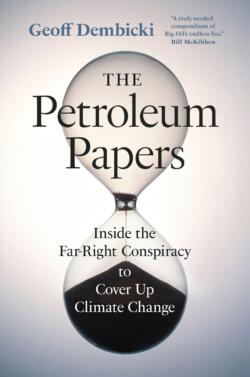 As I was reading The Petroleum Papers, I was thinking of Uncle Steve. My Great Uncle, S.R. Stevens, was an executive with Imperial Oil from the 1940s to the 1960s. I didn’t meet him until he had retired, when I spent some time on his ranch outside of Beiseker, Alberta. This nice old man taught me to drive a tractor and to walk with confidence, swinging my arms; could he have known about the threat to humanity that his company was responsible for? According to Geoff Dembicki, many top executives of the oil industry were present at the “Energy and Man” symposium in New York in 1959 when an eminent scientist warned of the potentially catastrophic effects of burning fossil fuels. Edward Teller said, “It has been calculated that a temperature rise corresponding to a 10 percent increase in carbon dioxide will be sufficient to melt the icecap and submerge New York.”
As I was reading The Petroleum Papers, I was thinking of Uncle Steve. My Great Uncle, S.R. Stevens, was an executive with Imperial Oil from the 1940s to the 1960s. I didn’t meet him until he had retired, when I spent some time on his ranch outside of Beiseker, Alberta. This nice old man taught me to drive a tractor and to walk with confidence, swinging my arms; could he have known about the threat to humanity that his company was responsible for? According to Geoff Dembicki, many top executives of the oil industry were present at the “Energy and Man” symposium in New York in 1959 when an eminent scientist warned of the potentially catastrophic effects of burning fossil fuels. Edward Teller said, “It has been calculated that a temperature rise corresponding to a 10 percent increase in carbon dioxide will be sufficient to melt the icecap and submerge New York.”
So yes, Uncle Steve knew, as did his colleagues in the oil industry, of the greenhouse effect and the dangers of increasing CO2 in the atmosphere by burning fossil fuels. In spite of this knowledge, the leaders of the industry made two conscious choices: firstly, to proceed with the development of new oil projects, most importantly the Alberta oil sands, “one of the biggest and most polluting oil sources in the world;” and secondly, to engage in a campaign of disinformation to protect their profits.

Dembicki is originally from Alberta, but spent several years in BC and contributes to The Tyee and VICE. The Petroleum Papers is his second book, after 2017’s Are We Screwed?, which won the Green Prize for Sustainable Literature. Petroleum Papers is one of the first books to reveal materials from a trove of internal oil industry documents. In his words:
Investigative research groups like DeSmog got access to huge amounts of these documents and posted them online in vast databases …. a site called Climate Files run by a group called the Climate Investigations Center … has a master collection of documents sorted by year and going back to 1953.[1]
The Petroleum Papers is organized into chronological sections, although the first section, “The First Warnings,” skips back and forth from the 1950s and 60s to 2013. Within the sections, there are chapters whose titles are quoted phrases from the text. I found this system to be a bit confusing, as I wasn’t sure if they were just short pull quotes without a callout box or chapter titles. I did appreciate how the endnotes were done, however, as there are no distracting superscript numbers in the text, but the notes are placed after short quotes from the text they refer to. A useful index is also included.
The documents quoted in these chapters reveal that oil companies, Dembicki writes, “knew about the dangers of climate change decades before the general public, made huge profits selling products that accelerated the [climate] emergency, spread doubt and confusion about the science, and then passed off the heavy costs …” Reading the chronicle of the ways that the industry spread doubt and denial is infuriating. The oil industry kept a step ahead of the public by hiring its own climate scientists and used the knowledge gained to predict the kinds of public pressure that would result when the science was made public. They invested significant resources to defuse the pressure by sowing doubt about the science — the same science that their own researchers were coming up with!
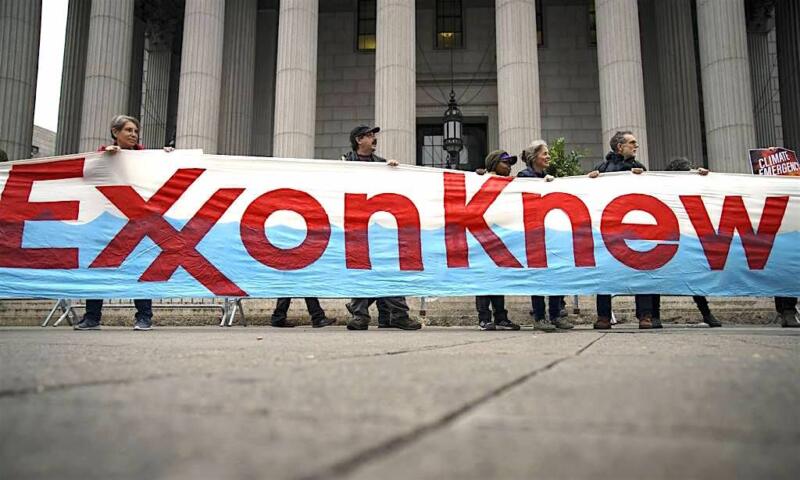

The companies even came up with a solution to climate change — a carbon tax — which they eventually supported publicly, but fought behind the scenes. Equally pernicious was the extensive lobbying and the infiltration of governments by former fossil fuel executives. Some of the chief villains in this campaign of lies were the Koch brothers (Koch Industries) who funded dozens of think tanks that spread the misinformation, the American Petroleum Institute, and Exxon, which is the subject of a social media campaign: #ExxonKnew. Vancouver-based Fraser Institute comes up for special mention as a major source of misleading and downright false reports on climate change.
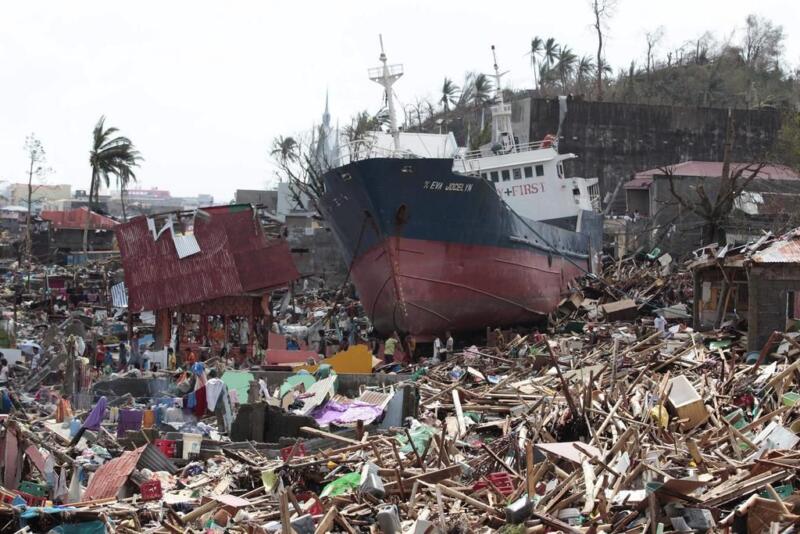
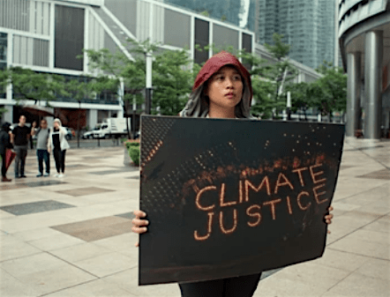
Dembicki weaves together this story of big oil’s conspiracy with personal stories of loss. Joanna Sustento lost family members and friends to Typhoon Haiyan, which struck the Philippines in November 2013, killing over 6,000 people. These stories serve to add interest to what would have been a dry reporting of documents, and they make an obvious point: climate change is not just a hypothetical problem in the future — it is killing people and destroying families now. What can people and communities do when they experience loss as a result of companies’ negligence and greed? They can ask the courts for justice, just as many governments did to recover some of their healthcare losses from tobacco companies.
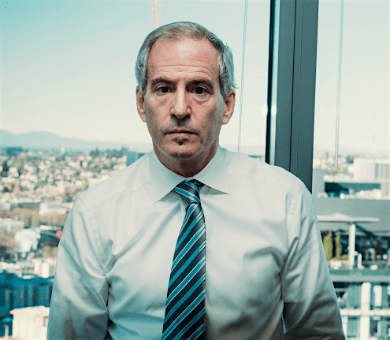
One of the same lawyers who successfully pursued tobacco companies to a $206 billion settlement, Steve Berman, has gone after the oil and gas industry on behalf of communities because, Dembicki notes, “He was convinced it had lied to the public about climate change the same way Big Tobacco had lied about cancer.” So far, Berman hasn’t succeeded in getting a settlement, but more and more cities are jumping into this fight, and the “Sue Big Oil” campaign is gaining momentum. The oil industry is trying to deflect, saying that every person who drives a car or uses plastic is to blame, just as the tobacco industry tried to say that people choose to smoke, but just as exposing the lies of Big Tobacco brought it down, exposing the lies of Big Oil may do the same.
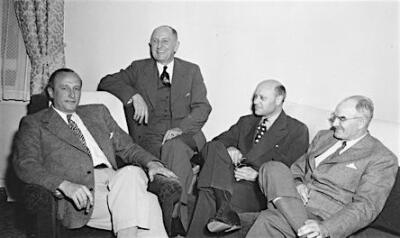
Getting back to Uncle Steve, the executives of the oil companies are men and (rarely) women who love and are loved by their families. They are uncles, aunts, parents and grandparents. How could they — how can they — reconcile what they do at work with their love for their children and grandchildren? Quite simply, they were taught in business school that there is a different set of ethics in business. When I was a business student at UBC, we were taught that the purpose of any corporation is to “maximize shareholder wealth.” I rebelled at this concept. At church I heard Father Joe Ponti say, “The business of business is helping people.”[2] What a different situation we would be in today if oil company executives, indeed all business people, had been taught to apply the same ethics in business as they use in their personal lives!

I imagine oil industry executives pivoting their business plans as the research about the causes and dangers of climate change became more and more certain. They could have wound down their petroleum businesses over the 1960s and 70s as they invested in, and brought to market, alternative technologies. They could have made their profits without hurting people and without making the Earth a dangerous place for their own children and grandchildren. There is still time to pivot, but the time is perilously short. It may be that Geoff Dembicki’s book is one of the crucial pieces that help to bring about this pivot, in time to avoid the worst.
*
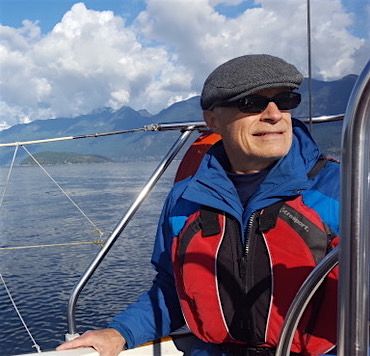
Mike Starr (M.A. Canadian Studies, Trent 1992), retired in 2017 from Parks Canada, where he had spent 24 years as an interpreter, planner, and manager at three different national historic sites, most recently Fort Langley. He now does writing and editing from his home on the Sunshine Coast. Contact him at mike@prose-star.ca Editor’s note: Mike Starr has also reviewed books by Arno Kopecky, Michael Kaehn, Cecilia Morgan, Caitlin Gordon-Walker, and Mary Tasi & Wade Baker for The British Columbia Review.
*
The British Columbia Review
Publisher and Editor: Richard Mackie
Formerly The Ormsby Review, The British Columbia Review is an on-line book review and journal service for BC writers and readers. The Advisory Board consists of Jean Barman, Wade Davis, Robin Fisher, Barry Gough, Hugh Johnston, Kathy Mezei, Patricia Roy, Maria Tippett, and Graeme Wynn. Provincial Government Patron (since September 2018): Creative BC. Honorary Patron: Yosef Wosk. Scholarly Patron: SFU Graduate Liberal Studies.
“Only connect.” – E.M. Forster
*
References:
[1] Interview with Geoff Dembicki by David Beers, published 15 Sep, 2022 in The Tyee, “Geoff Dembicki on How He Wrote a Big Oil Blockbuster”
[2] From a homily at St Helen’s Catholic Church, Burnaby, BC, in the mid-1980s. Full statement: “The business of the church is helping people. The business of government is helping people. The business of business is helping people.”
4 comments on “1644 A threat to humanity”
merci : thank you
Love the personal connection of your uncle who was in Big Oil to Dembecki’s book. How those in Big Oil compartmentalized their private and professional lives, clueless as to the impact one had on the other. Blistering review of their actions. I thoroughly enjoyed Dembecki’s first book and it looks like this one is another great expose.